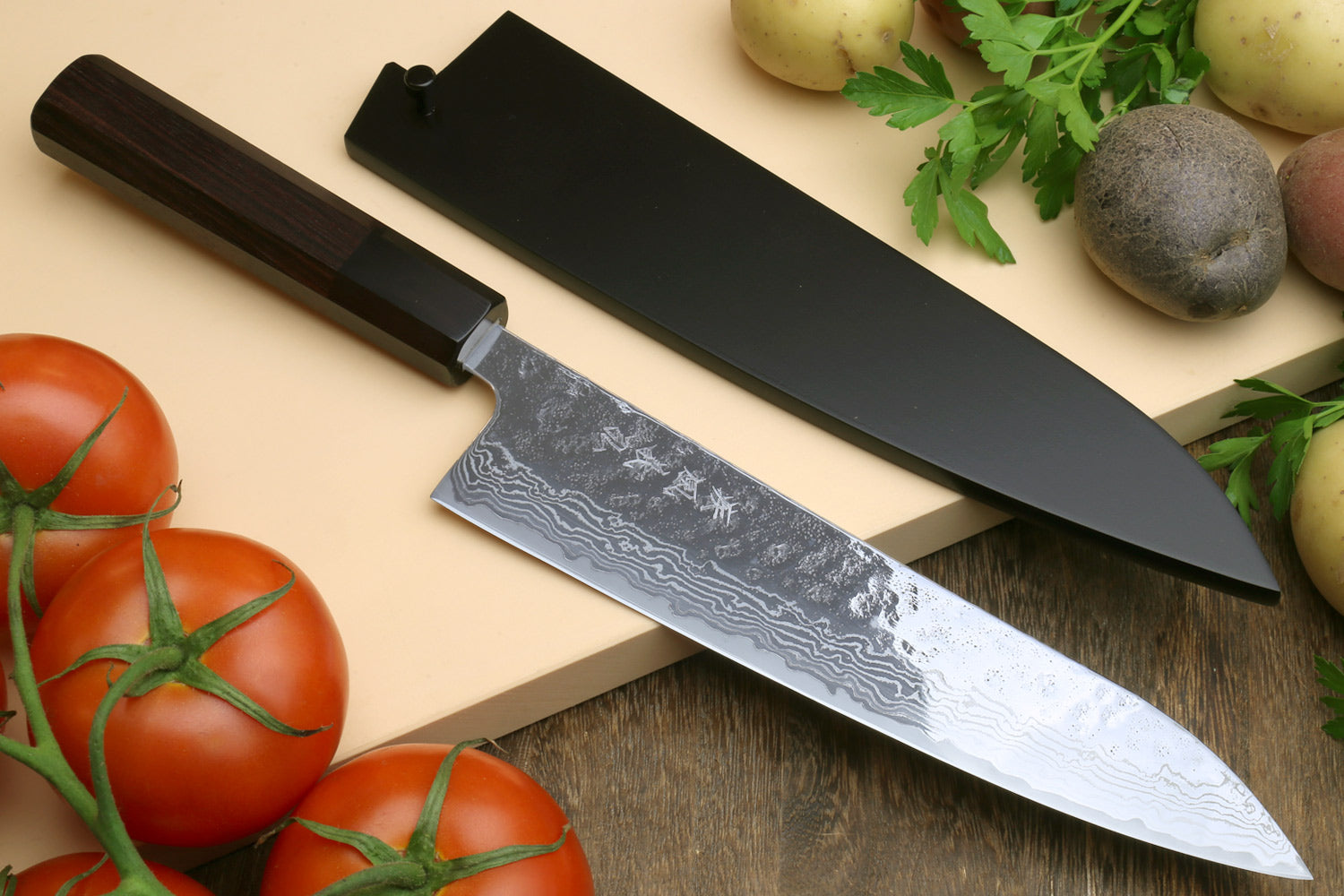In the captivating world of culinary arts, few tools evoke admiration and intrigue like Damascus steak knives. These knives have been a staple in the kitchens of professionals and enthusiasts alike, offering not only exceptional functionality but also a poetic blend of artistry and engineering. If you're a kitchen professional, understanding the allure and utility of these knives can elevate your culinary prowess to new heights.

What Sets Damascus Steak Knives Apart?
Among the myriad of tools found in a chef's arsenal, Damascus steel stands out due to its historic craftsmanship and enduring quality. Originating from the ancient city of Damascus, this type of steel is renowned for its distinctive wavy pattern, reminiscent of flowing water. This unique design is not just for aesthetics; it is a testament to the intricate layering and folding techniques that give these knives their strength and durability.
The process involves the forging of multiple layers of steel, typically creating a pattern-welded blade. This method not only results in a spectacular blade pattern but also adds to the knife's resilience and sharpness. Many [professionals](https://science.howstuffworks.com/damascus-steel.htm) in the culinary industry vouch for the superior edge retention and precise cutting capability that Damascus knives offer, making them indispensable in a professional kitchen setting.
Why Kitchen Professionals Prefer Damascus
In high-stakes culinary environments, the reliability of one's tools can make a significant difference in performance. This is why so many chefs gravitate towards Damascus steak knives. Their unmatched sharpness and balance facilitate precision in food preparation, ensuring even the most delicate cuts are executed flawlessly. For a chef, the quality of the cut reflects on the final presentation, making it crucial to have the best tools at hand.
Moreover, Damascus knives provide a ergonomic experience that many other knives lack. The expert forging ensures weight distribution that minimizes user fatigue, which is pivotal during long shifts in the kitchen. Additionally, owning a beautifully designed knife adds a personal touch of prestige and elegance to a chef's toolkit, often becoming a conversation piece among peers.
Maintenance and Care for Optimal Performance
Investing in Damascus steak knives means committing to proper maintenance to retain their edge and appeal. These knives require more care compared to stainless steel alternatives. To keep them in pristine condition, regular honing is recommended, along with hand washing and drying immediately after use to prevent any moisture from compromising the blade.
Applying a light coat of mineral oil can help protect the blade from rust and corrosion, enhancing its longevity. Proper storage also plays a crucial role. A knife block or magnetic strip is often preferred to avoid any blade contact that can dull the edge. More detailed tips on care can be found [here](https://knives.shop/blogs/my-blog/damascus-boning-knife).
The Historical Significance of Damascus Steel
The prestige associated with Damascus steel dates back centuries. Its origins can be traced to the Near East, where blades of such craftsmanship were heralded for their superior strength and unique pattern. Today, this legacy continues as artisans and knife makers globally have kept the tradition alive, adapting ancient techniques to modern sensibilities. You can learn more about the fascinating history [here](https://www.shieldon.net/the-history-of-damascus-steel-and-folding-knives/).

Choosing the Right Damascus Steak Knife
For kitchen professionals on the lookout for the perfect steak knife, several factors should be considered. Blade length and handle comfort are paramount, tailored to your specific culinary needs. While some prefer longer blades for larger cuts of meat, others might favor a shorter, more maneuverable knife.
The handle material, often wood or resin, should offer a firm grip and withstand moisture without warping. Ultimately, a chef should select a knife that feels like a natural extension of their hand, promoting both precision and ease of use. More tips on choosing the right knife can be found here.
FAQ Section
Are Damascus steak knives worth the investment?
Absolutely. Despite the higher initial cost, their durability, sharpness, and aesthetic value offer a significant return on investment for professional chefs.
How often should Damascus knives be sharpened?
With regular use, honing should be done frequently, about once a week, while sharpening is suggested a few times a year depending on usage.
Can Damascus knives be used for all types of meats?
Yes, they are versatile enough to handle various types of meat, from tough cuts to delicate fillets, ensuring precision and ease during preparation.
This article contains affiliate links. We may earn a commission at no extra cost to you.


























